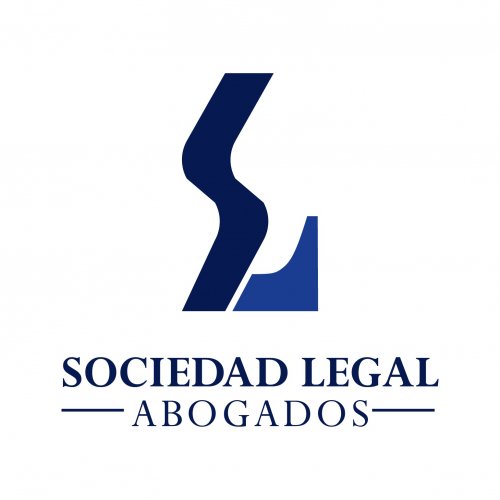Best Civil & Human Rights Lawyers in Ecuador
Share your needs with us, get contacted by law firms.
Free. Takes 2 min.
Or refine your search by selecting a city:
List of the best lawyers in Ecuador
About Civil & Human Rights Law in Ecuador
Ecuador is a nation that places great emphasis on the protection of civil and human rights. Its 2008 Constitution provides a comprehensive legal framework that recognizes and enshrines the rights of individuals and groups, emphasizing equality, human dignity, and personal freedoms. Ecuador is also a signatory to various international human rights treaties, which bolster its commitment to uphold these standards globally and domestically. Civil rights in Ecuador cover a range of issues including freedom of expression, the right to education, equality before the law, and protections against discrimination. Human rights policies aim to protect individuals against abuses and ensure the promotion of social justice and the rule of law.
Why You May Need a Lawyer
Seeking legal assistance in the realm of civil and human rights is important in several scenarios. Common situations include: facing discrimination in employment or education, experiencing violations of freedom of speech, being subject to unlawful detention or arrest, needing guidance on indigenous rights, and requiring support in circumstances of domestic violence or gender-based violence. A knowledgeable lawyer can help navigate the legal system, ensure your rights are protected, and provide representation in case of legal proceedings.
Local Laws Overview
The legal landscape in Ecuador concerning civil and human rights is shaped by several key pieces of legislation and principles. The 2008 Constitution establishes the foundations of civil rights, ensuring equality and non-discrimination, and recognizes the rights of nature. The Organic Law on Intercultural Education and the Law on Disabilities are examples of Ecuador's commitment to specific rights, such as access to education and rights for individuals with disabilities. Additionally, Ecuador's adherence to international treaties like the American Convention on Human Rights further reinforces local laws protecting human rights.
Frequently Asked Questions
What are my basic civil rights in Ecuador?
Your basic civil rights include the right to life, freedom of thought and expression, access to education, and equality before the law, as outlined in the 2008 Constitution.
How does Ecuador protect indigenous rights?
The Constitution recognizes indigenous peoples' rights to maintain cultural identity, manage lands and resources, and participate in decision-making processes that affect their communities.
What steps can I take if my rights are violated?
If your rights are violated, you can seek legal assistance, file a complaint with the Ombudsman’s Office, or pursue legal action through the judicial system.
Can I access legal aid if I cannot afford a lawyer?
Yes, there are governmental and non-governmental organizations that provide legal aid to those who cannot afford legal representation.
How does Ecuador handle cases of discrimination?
Ecuadorian law prohibits discrimination based on gender, ethnicity, age, disability, or any other personal characteristic, with legal recourse available for victims.
What role do international treaties play in Ecuadorian law?
International treaties that Ecuador has ratified are considered part of domestic law, thus influencing national human rights standards and legal proceedings.
What is the role of the Constitutional Court in Ecuador?
The Constitutional Court adjudicates cases involving constitutional violations and ensures that laws and governmental actions comply with constitutional provisions.
Are there specific rights for children and adolescents in Ecuador?
Yes, children and adolescents have special protections under the Constitution and the Code for Children and Adolescents, ensuring their development and participation rights.
How does Ecuador approach gender-based violence?
Ecuador has laws and policies in place to prevent, address, and punish gender-based violence, including specialized courts and procedures.
What is the Ombudsman’s Office?
The Ombudsman’s Office (Defensoría del Pueblo) is an autonomous institution responsible for safeguarding human rights and monitoring governmental actions.
Additional Resources
For further assistance, consider reaching out to the following organizations:
- Defensoría del Pueblo (Ombudsman’s Office): Ensures the protection of human rights.
- Centro de Derechos Humanos (Center for Human Rights): Offers advocacy and legal support.
- Fundación Regional de Asesoría en Derechos Humanos (Regional Foundation for Human Rights Advisory): Provides legal guidance and representation.
- Consejo Nacional para la Igualdad de Género (National Council for Gender Equality): Focuses on gender equality issues.
Next Steps
If you require legal assistance in civil and human rights matters, consider the following steps:
- Identify and document the issue or violation you are experiencing.
- Consult with an attorney or legal advisor specializing in civil and human rights law.
- Reach out to local or international human rights organizations for guidance and resources.
- Consider filing a formal complaint with relevant governmental bodies, such as the Ombudsman’s Office.
- Prepare for legal proceedings by gathering evidence and witness testimonies where applicable.
Lawzana helps you find the best lawyers and law firms in Ecuador through a curated and pre-screened list of qualified legal professionals. Our platform offers rankings and detailed profiles of attorneys and law firms, allowing you to compare based on practice areas, including Civil & Human Rights, experience, and client feedback.
Each profile includes a description of the firm's areas of practice, client reviews, team members and partners, year of establishment, spoken languages, office locations, contact information, social media presence, and any published articles or resources. Most firms on our platform speak English and are experienced in both local and international legal matters.
Get a quote from top-rated law firms in Ecuador — quickly, securely, and without unnecessary hassle.
Disclaimer:
The information provided on this page is for general informational purposes only and does not constitute legal advice. While we strive to ensure the accuracy and relevance of the content, legal information may change over time, and interpretations of the law can vary. You should always consult with a qualified legal professional for advice specific to your situation.
We disclaim all liability for actions taken or not taken based on the content of this page. If you believe any information is incorrect or outdated, please contact us, and we will review and update it where appropriate.
Browse civil & human rights law firms by service in Ecuador
Ecuador Attorneys in related practice areas.
Browse civil & human rights law firms by city in Ecuador
Refine your search by selecting a city.












